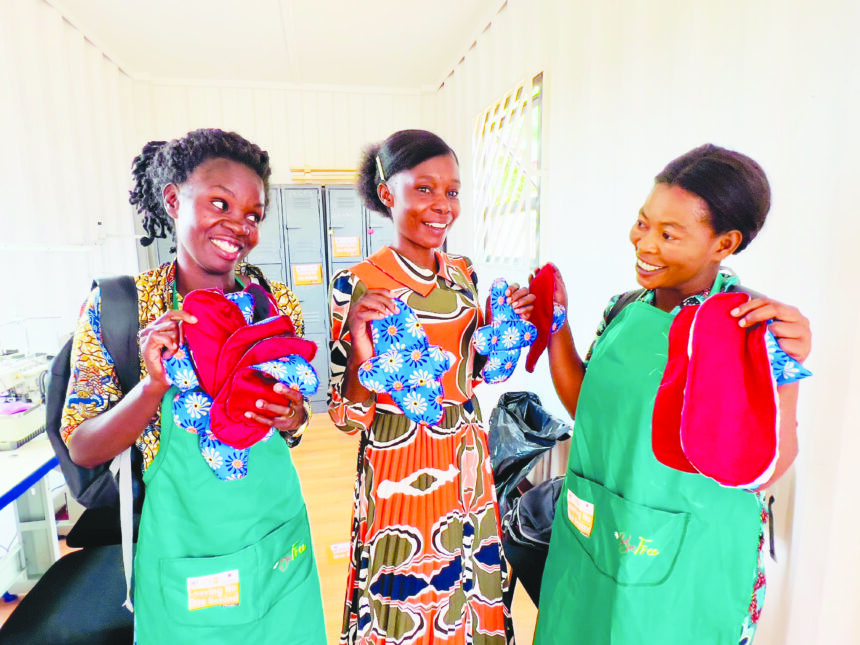OSIRE – Young women in the Osire Refugee Camp, driven by determination and a desire for self-sufficiency, have initiated a project focused on the production of sanitary pads.
The Sanitary Pad-Making Initiative seeks to enhance menstrual hygiene management, improve economic opportunities and empower marginalised women by equipping them with skills in the sustainable production of sanitary pads.
This initiative emerged from a training programme that was facilitated by the #BeFree Movement.
The United Nations Population Fund (UNFPA) then conducted a workshop on the manufacturing of reusable sanitary pads in the Otjozondjupa region.
Esther Shifotoka from the One Economy Foundation remarked on the fulfilment experienced by the participants, who gained essential knowledge to implement this project effectively.
“They received the samples and worked according to that. The current pace we have monitored shows that every trainee can produce up to 200 pads, depending on the schedule. So, we cannot specify a daily or hourly output. However, that is their capability, which typically aligns with the demand,” she noted.
A refurbished container was supplied, along with 30 starter kits and eight industrial sewing machines, all amounting to N$738 000.
The workshop is part of the initiative titled ‘Leaving No One Behind (LNOB) – Building Back Better from Covid-19: Restoring Dignity and Reshaping the Future for Women, Girls, Men and Boys, while Mitigating Gender-Based Violence (GBV) and Negative Sexual and Reproductive Health (SRH) Outcomes’.
It is supported by the Government of Japan.
A total of 30 women received training in menstrual hygiene, while a core group of 10 were instructed in the production of reusable sanitary pads.
This fosters self-sufficiency and economic independence.
Zawadi Johari-Kasereka, the president of the Osire Women’s Association for Pads Production (OWAPRO), stated that the advantage of this project lies in the fact that the reusable sanitary pads are designed for universal use.
“Whether for low, medium or extremely heavy flow, the pads accommodate all needs. Several women have reported experiencing heavy flows. The pads proved effective in those cases. The product is of high quality,” she remarked.
One of the challenges identified by her is the limited availability of materials required to produce the pads.
“The issues of supply and demand present significant obstacles for the women involved. Additionally, the market poses a challenge, as these reusable sanitary pads are perceived as outdated. Reintroducing them will require a shift in public perception, necessitating a concerted effort to promote this product within the market,” she acknowledged.
Esther Kisesa, a 31-year-old trainee, expressed that this represents a remarkable opportunity.
“Many individuals cannot afford sanitary pads, making this initiative a vital resource for those lacking financial means. The ability to reuse these pads is something I will always appreciate,” she said.
The Osire Refugee Camp was established in 1992 to provide shelter for refugees and asylum- seekers from Angola, Burundi, the Democratic Republic of the Congo, Rwanda and Somalia.
Current estimates indicate that the camp is home to nearly 7 000 residents, with a relatively balanced gender ratio.
It is located approximately 200 kilometres north of Windhoek, along the C3 Otjiwarongo road.
–psiririka@nepc.com.na



